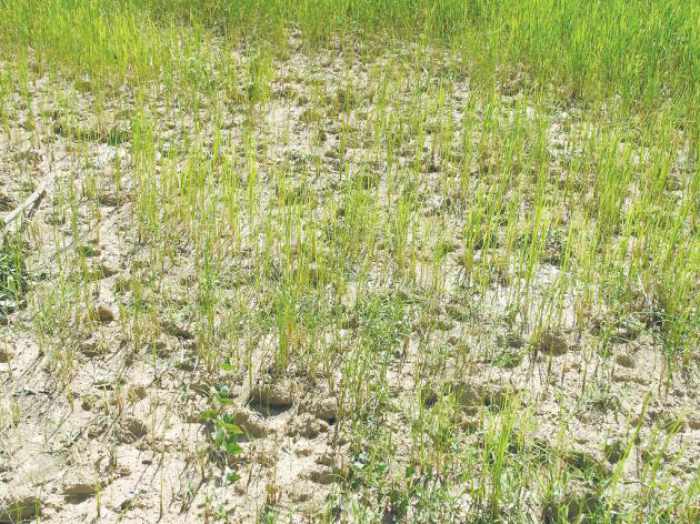Low rain spurs fear of drought in North

– Thailand news selected by Gazette editors for Phuket’s international community
PHUKET: Despite being in the middle of the wet season, there are already fears of drought in the North, as the volume of rain has been unseasonably low, leaving two key dams in the region partially empty. In addition, the unusually infrequent rains in the Northeast are causing the same problem with water reservoirs in the region.
The situation in the Northeast province of Nakhon Ratchasima is worse than in Tak and Uttaradit, where Bhumibol Dam and Sirikit Dam are located respectively, as the release of water from the dams would be heavily limited due to a lower level of rain in October.
October is usually peak of the wet season in Thailand.
The situation in the Central region is slightly better, where the volume of rainwater is not very low in most areas, including Kanchanaburi where Srinagarindra and Vajiralongkorn dams are located. These dams will still be able to release enough water for irrigation by the year’s end, provided the volume of rain remains constant, Thanarat Phummakasikorn, director of Srinagarindra Dam, said.
Phisut Chokekhatiwat, director of Tak’s Bhumibol Dam, said the reservoir contained a little over 100 million cubic metres of water at a time when the amount is usually three times higher.
Suthep Lertsrimongkhol, director of Sirikit Dam in Uttaradit, described the situation as “worrying”, saying that the water level of his dam was at 13 per cent of full capacity, which would not be sufficient to irrigate farms if there is no significant rainfall.
Last year, Bhumibol Dam had 4,431 cubic metres of water at this time of the year, compared to 4,251 cubic metres this year, Phisut said.
“If this continues, the Royal Irrigation Department [RID], which operates all government dams, will have to ask farmers to skip their off-season farming,” he said.
Low releases a risk to fish farms
Ubolrat Dam in the northeastern province of Khon Kaen has released less water than normal, Phinyo Thongsing said. Phinyo is director of the Ubolrat Dam and also supervises all hydropower dams in the region.
This dam is only about 27 per cent full due to the lack of rains, and is only able to release some 2 million cubic metres a day, compared its regular rate of 3 million cubic metres, he pointed out.
Meanwhile, Phisut said the insufficient release of water could also mean that seawater flow into rivers or estuaries in lower regions, which in turn would damage fish farms and affect the production of tap water. The shortage will be most felt in January or February, when the rains stop and sea levels rise.
Suthep said normally Sirikit Dam reached 6 billion units of water, which was enough for farming, but this year, the dam will have no more than 4 billion units from now until late October when the wet season ends.
The two dams, which also produce hydropower, are key water storage resources for the entire Mae Ping River basin in the North.
RID will be meeting soon to discuss possible management of water resources in case of drought.
The Mae Ping is one of the four tributaries of the Chao Phya River and contributes greatly to the water volume used in the Central region, which is the country’s key farming area. Insufficient water supply could result in farms being affected, while excessive water can bring about flooding.
Reflecting his concern over possible lack of water, Suthep said he “prayed” that there would be at least 1 billion units saved from rain in September and October so Sirikit Dam can continue releasing water at its normal rate. He explained that if there were sufficient rains in areas south of Uttaradit – or in the entire Central region – then Sirikit Dam could release 7 million units of water daily to supply farmland.
— Phuket Gazette Editors
Latest Thailand News
Follow The Thaiger on Google News:


























